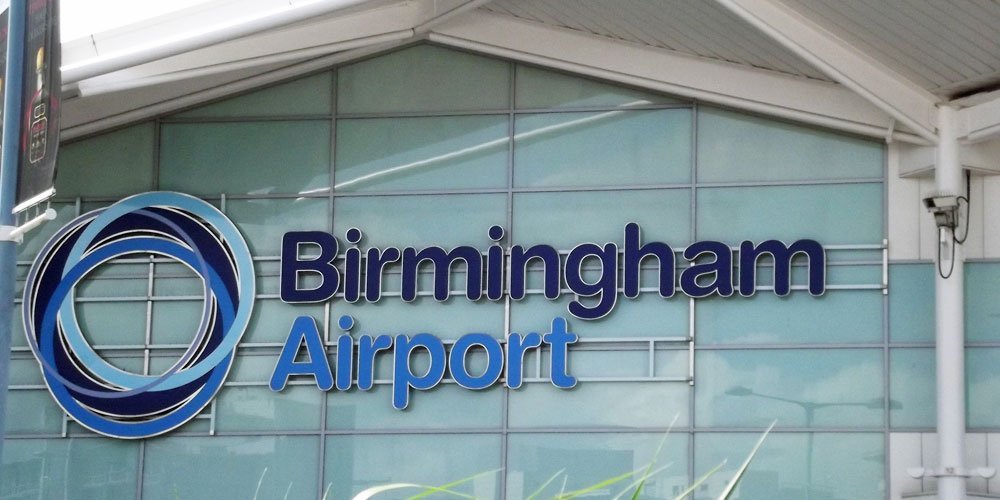The Commonwealth Games will be a crowning moment in the regeneration of the UK’s second-biggest city but, as the city mulls an airport tax, agreeing funding is less certain, writes Chris Smith.

The opening ceremony is set for July 2022 and preparations are well under way to hold 17 events across the Birmingham region.
Existing venues, such as the NEC conference centre, and the city’s international airport mean most of the infrastructure is in place.
The Commonwealth Games will also highlight the city’s impressive regeneration that has included a revamped station and Bullring retail centre.
Driving it is a masterplan started a decade ago that now has commitments to deliver £2.1bn to the local economy over the next 20 years.
Delivering the Games was not part of the original plans – Birmingham won after Durban in South Africa was stripped of the honour following the raising of financial concerns.
Costs for the Birmingham event are estimated to be up to £750m as the final budget has yet to be confirmed.
Central government will fund 75% of the bill with Birmingham organising how £184.7m will be raised.
The initial split includes partner contributions of £75m divided between the three regional Local Enterprise Partnerships (LEP), the combined authority, the Midlands Engine and universities.
The council will use existing capital resources of £19.7m, prudential borrowing of £50m and council revenue contributions of £40m.
Where the revenue comes from is proving to be difficult for Birmingham, although the council argues discussions are in the early stages.
The council is deciding its next move after being warned by the Birmingham Improvement Panel last week that “the council’s financial resilience would be sorely tested” if there were cost-overruns or business rate collection dropped during the construction phase.
The panel advised the council to bring the additional costs onto its forward planning and revenue plans.
Local tax solutions
Birmingham has identified four potential sources of tax which were set out in a report to councillors last week – but each have significant challenges.
Supplementary business rates was the first option, but the council admitted legislation was not put in place and local businesses have made clear that with Brexit uncertainty and falling consumer spending they were not prepared to support it.
The second option was a Workplace Parking Levy, similar to that already in place in Nottingham.
The council admitted it would take up to five years to implement the scheme and it was unknown how much revenue could be raised.
A hotels tax was the next option which the Core Cities group have recently been explicitly exploring options for a joined up national approach to this approach.
The council calculated a levy of £1 per room per night could generate in the region of £3m a year for Birmingham, or £12m a year across the region.
Other cities are looking at the option of a tourism tax including Edinburgh.
A recent report by the Institute for Fiscal Studies revealed the UK is one of only nine countries that does not levy a tourism tax.
The challenges are whether it would impact on tourism after the Games have finished.
The Birmingham report admitted the proposal “was met with substantial resistance from the major hotel chains in particular” and that primary legislation would be required.
The council concluded the prospect of legislation was unlikely.
Easiest to implement would be an airport levy as Birmingham International Airport is jointly owned between the Ontario Teachers’ Pension Plan (48.25%) and the seven West Midlands councils (49%).
Birmingham is the largest single shareholder with 18.7%.
However, the report warned: “Any levy that would introduced would reduce the profitability of the airport as a whole, and therefore reduce the level of dividends payable to its shareholders.”
The proposal is for a flat rate charge for each departing passenger (excluding administration costs and any exemptions for particular categories of passenger) suggests that a charge of £1 per passenger could generate in the region of £6.5m.
The report concluded: “The key to achieving such agreements would be in making the case that the Games is contributing to making the region a more popular visitor destination, resulting in increased passenger numbers and therefore increasing the airport’s profitability.”
Next steps
So where does that leave Birmingham? There are two clues about the council’s next steps.
An assessment report of the 2018 Games hosted at the Gold Coast in Australia concluded the event delivered a $2.5bn economic boost to Queensland, including $1.8m to the Gold Coast.
Approximately 82% of Games-wide contracts, worth nearly $1.7bn, were awarded to Queensland businesses.
The Gold Coast organisers have offered to share their knowledge from the event – including how it was funded – and Birmingham has already accepted.
After the London 2012 Games, the sale of the athletes’ village to property developers was a key part of financing the event.
The sale of land and property after 2022 is an option that Birmingham has not discussed in public.
The council has made clear the event is separate to daily business and does not want the costs added to its already heavily stretched budget.
A Birmingham City Council spokesperson said: “The city council is determined that the funding mechanisms it is exploring should not impact day-to-day services and that the investment in the Games should not come from council tax.
“We, along with our partners, are focused on ensuring the event both delivers a strong and lasting positive legacy as well as value for money.
“There is a commitment from government to work with the council to look at different forms of revenue-raising and the council continues to consider and discuss these options.”










